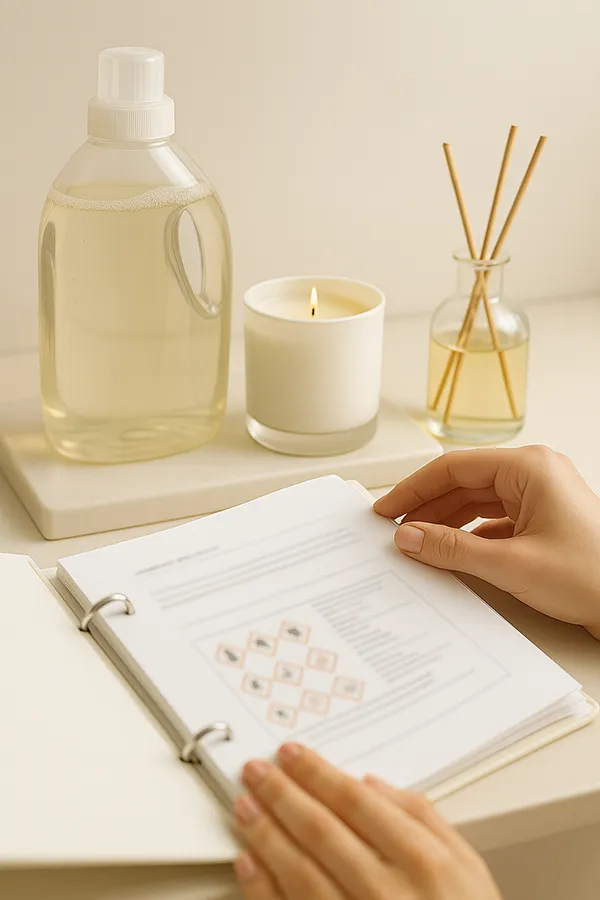
If your suppliers cannot provide a compliant Material Safety Data Sheet (MSDS), Taobé will produce one for you. The MSDS is a critical document containing essential information about your product’s chemical composition, safe handling, and potential hazards. It plays a central role in your compliance strategy, ensuring your product meets EU and UK safety regulations. Simply submit your finished product formula, and our experts will prepare a CLP-compliant SDS in accordance with Regulation (EU) 2020/878.
Regulatory compliance starts with your formula. Our team of regulatory experts conducts a thorough review of your ingredients to ensure they are permitted for use in cosmetics and consumer goods across the UK and EU. We assess the concentration levels, intended product use, and target population to determine compliance. This step also identifies the correct product classification and guides compliant labelling and claims.
Product compliance means making sure that items like detergents, scented candles, air fresheners, and other household goods meet all legal safety, labelling, and documentation requirements under UK and EU regulations before being placed on the market.
Yes, if your product contains hazardous ingredients (common in cleaning agents, air fresheners, or room sprays), you may need to notify poison centres via the ECHA portal or equivalent national systems.
To ensure full product compliance, you must check that all substances comply with EU/UK regulations like REACH and the CLP Regulation. Restricted or banned ingredients could prevent legal sale, so consulting regulatory databases or product compliance experts is essential.
Under product safety regulations, you are required to keep technical documentation (such as SDS, classification reports, and labels) for at least 10 years after the last batch of the product is sold—whether it’s a scented candle, detergent, or any household item.
Non-compliant products can be removed from sale, recalled, or penalised with fines. Authorities may also require corrective actions. Non-compliance affects brand trust, delayed market entry, and can lead to legal risk—especially under the General Product Safety Regulation (GPSR).
Yes. These products are regulated under the CLP Regulation, GPSR, and in some cases REACH, especially if they contain hazardous substances. Proper labelling, hazard communication, and safety documentation are all required for legal sale in the UK and EU.
If you are a manufacturer outside the UK or EU, you must appoint an authorised representative to fulfil your obligations under UK and EU product compliance laws. This includes holding technical documentation and acting as a point of contact for market authorities.
You typically need a Safety Data Sheet (SDS), product classification and labelling information, proof of Poison Centre Notification (PCN) if applicable, and labelling that meets CLP/GPSR rules. A full compliance assessment can help identify any missing documents.
Yes. Even small-batch or handmade products must comply with the same safety and labelling standards if they are sold commercially. This includes CLP labelling, hazard communication, and in many cases, PCN notification and responsible person designation.
